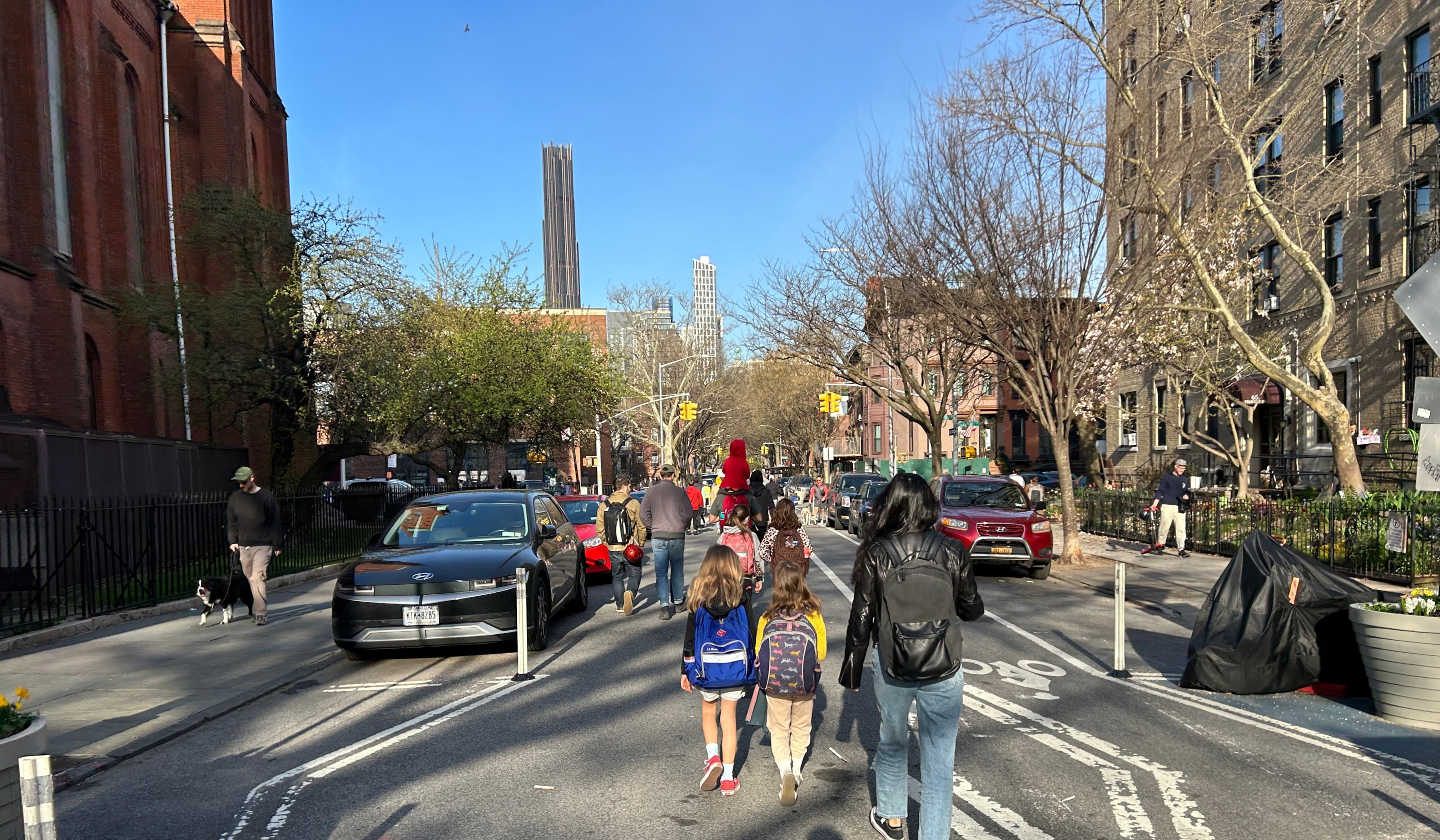A federal court should throw out a lawsuit targeting the open streets program, city lawyers said, arguing that the initiative to give street space back to people doesn't violate state and federal disability rights as foes claim.
Attorneys with the city said the program only covers a minuscule share of the city's streetscape, and that officials do not have to provide front-door access on every single street around the clock. The lawyers also accused the plaintiffs of wielding legal protections like the Americans with Disabilities Act to dismantle a program that has reclaimed space from cars and made streets safer for all road users.
"Open Streets only operates on a small fraction of city streets, and thus, restricting vehicular access to a handful of streets cannot be deemed a denial of participation in a city service, program, or activity under the ADA," reads the April 12 legal filing [PDF].
A clause in the 1990 federal law says that people with disabilities cannot be excluded from public “services," but the city argued that the street grid as a whole still remains almost entirely open to vehicles.
"The city ... is not responsible to ensure that every single existing street must be accessible 24 hours a day and seven days a week by vehicle," the court documents continued. “At its core, the [lawsuit] seeks to turn the ADA from a shield that prevents discrimination, into a sword to undo a program, duly enacted by the City Council, which Plaintiffs barely seek to hide their animosity toward."
A dozen city residents last year sued the city and volunteers of the open streets program, claiming the metal barricades that are deployed to restrict, but not eliminate, through-travel by drivers denied equal access to the streets for people with disabilities, who say it is difficult for them or their drivers to move the fences out of the way.
Advocates and legal experts at the time slammed the case for ignoring the endless ways in which cars have long blocked access all over the city and how drivers have long endangered seniors and the disabled.
The plaintiffs, who live near major open streets like Berry Street in Brooklyn, the “gold standard” 34th Avenue in Queens, and Avenue B in Manhattan, argued in a response [PDF] that the barricades rendered them “shut-ins,” because they struggle to move the barriers and because they said ride-hail companies and Access-A-Ride drivers won’t roll up to their front doors anymore.
The city’s legal arguments noted that the complaints didn’t contain issues that singled out people with disabilities — even if they were true.
“Most of the alleged injuries are made up of mere statements of perceived fears, or incidents occurring on unspecified dates. While photographs are included, they are undated,” the city wrote.
The program approved restrictions on 25 miles of streets last year — a mere 0.4 percent of the total 6,300 miles managed by the Department of Transportation, the city's filings note.
Allowing the lawsuit to succeed would invited legal challenges to any street closure, including parades and routine road work, officials added.
“The city manages its streets and is authorized under the law to close streets, either on a permanent or temporary basis, for a variety of reasons. When it does so, it is under no obligation to provide vehicular access or parking directly in front of a particular individual’s home,” stated the filing by Corporation Counsel Sylvia Hinds-Radix.
DOT’s recently finalized open streets rules allow anyone to move barriers temporarily to gain access, and the agency may provide assistance on request to people who are eligible for Access-A-Ride, or hold a valid parking permit for people with disabilities.
The plaintiffs's lawyers argued that wasn't enough and set the bar too high for people to qualify for the help.
"The proposed rules do not require the city to do anything, as they are phrased as permissive, not mandatory rules," read the response in the court filings by the open streets critics.
Their original lawsuit raised eyebrows by beginning with a George Orwell quote next to a headshot of the English novelist, and continued by likening safety advocates to Nazi "brown shirts." Lawyers for the plaintiffs refiled an amended complaint in December [PDF] scrapping references to Orwell and the Third Reich.
The latest version of the lawsuit, which still derides the initiative as the “closed streets program" for limiting automobile access, listed examples purporting to show open streets barricades getting in the way.
Those included grainy and undated shots of a fire truck and an ambulance, but without clear evidence that those emergency vehicles were actually blocked from entering, or law-breaking that is not sanctioned by open streets, such as delivery trucks parked in the crosswalks or planters moved into the curb cut.






